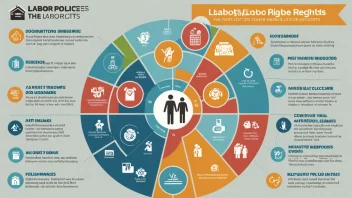Introduction
Income inequality is a pressing issue that affects millions around the world, leading to disparities in wealth, health, and opportunities. Researchers across various disciplines are actively investigating the causes and consequences of income inequality, as well as proposing solutions to bridge the gap. This article explores common questions regarding how research is tackling this complex problem.
What are the primary causes of income inequality?
The causes of income inequality are multifaceted and can vary by region. Key factors include:
- Education: Access to quality education is often limited for lower-income individuals, restricting their job opportunities.
- Technological Change: Automation and technological advancements can displace low-skilled workers while benefiting those with specialized skills.
- Globalization: The global economy can lead to job losses in certain sectors, particularly in manufacturing, as companies seek cheaper labor abroad.
- Tax Policies: Tax structures that favor the wealthy can exacerbate income disparities.
How is research helping to understand income inequality?
Researchers employ various methods to analyze income inequality, including:
- Data Analysis: Economists utilize large datasets to track income distribution and identify trends over time.
- Case Studies: Specific regions or communities are studied to understand localized impacts and solutions.
- Surveys: Researchers conduct surveys to gather firsthand accounts of how income inequality affects individuals' lives.
What are some key findings from recent studies?
Recent research has revealed several important insights, such as:
- Education and Income: Higher levels of education correlate with higher income, emphasizing the need for accessible education.
- Health Disparities: Income inequality is linked to significant health disparities, affecting access to healthcare and overall well-being.
- Social Mobility: Areas with high income inequality often have lower social mobility, making it difficult for individuals to improve their economic status.
What solutions are being proposed to address income inequality?
Researchers and policymakers are exploring various solutions, including:
- Universal Basic Income (UBI): Some studies suggest that implementing UBI could provide financial security and reduce poverty.
- Progressive Taxation: Adjusting tax policies to ensure the wealthy contribute a fairer share can help redistribute wealth.
- Access to Education and Training: Investing in education and vocational training programs can equip individuals with skills needed for better-paying jobs.
How can individuals contribute to reducing income inequality?
While research and policy changes are crucial, individuals can also play a role by:
- Advocacy: Supporting policies that promote equity and fair wages.
- Community Engagement: Volunteering or donating to organizations that assist low-income individuals and families.
- Education: Educating oneself and others about the impacts of income inequality and the importance of equitable policies.
What role do governments play in addressing income inequality?
Governments are critical in shaping policies that can either mitigate or exacerbate income inequality. Their roles include:
- Legislation: Enacting laws that promote fair labor practices and protect workers' rights.
- Social Programs: Funding social safety nets such as healthcare, housing, and education can help reduce disparities.
- Economic Policies: Implementing policies that encourage job creation and fair wages can boost economic equality.
Conclusion
Addressing income inequality requires a multifaceted approach that includes rigorous research, informed policy-making, and active community participation. By understanding the complexities of this issue, we can work towards a more equitable society where everyone has the opportunity to thrive.






